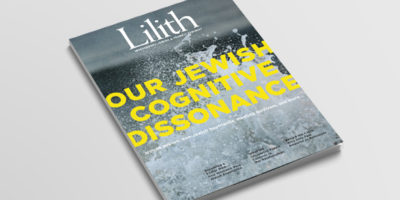Women Inventing Themselves in Israeli Cinema

Photo: West End Films
The film “Self Made” (“Boreg” in Hebrew, meaning “hardware screw”), written and directed by Shira Geffen, opens with the collapse of a couple’s bed, out of which falls Michal Kayam (played by Sarah Adler), an artist, hitting her head.
After her husband leaves on a business trip, she orders a new bed. But going about assembling it, finds she is missing a screw. Then, in this palindrome-like film, we meet Nadine Nasrallah (played by Samira Saraya), who travels though checkpoints from the Occupied Territories to get to her job at Eteka, an Ikea-like factory where she pilfers screws from the packets she puts together; she has a terrible sense of direction and drops the screws, Hansel-and-Gretel-like, along her way to work in order to find her way back home.
Both female characters have memory issues, and when in the course of several absurd events they change places, the irony is not lost on the viewer that no one really pays enough attention to them to notice the switch, including a German TV crew who come to interview the artist. This film in its quiet way has much to say about the “situation” in Israel and its repercussions on everyone’s lives, but also, in particular, about the lives of women. At a screening of this sometimes slow, often funny and ultimately sobering feature film at the JCC Manhattan in June, Geffen told the audience she identifies with both women in the film; that we should notice there was no violence or nudity in it; that she spent several months a few years ago with Machsom Watch, the Israeli group that monitors checkpoints. The seed for the plot was a newspaper article about a Palestinian woman who came to detonate a bomb in an Israeli shopping mall but changed her mind when she got there because she realized she, like the other strollers, wanted to shop and have an ice cream.
Among the many details to notice in this beautifully made film is that both female protagonists have first and last names, making them seem specific and real, rather than creatures of myth.



